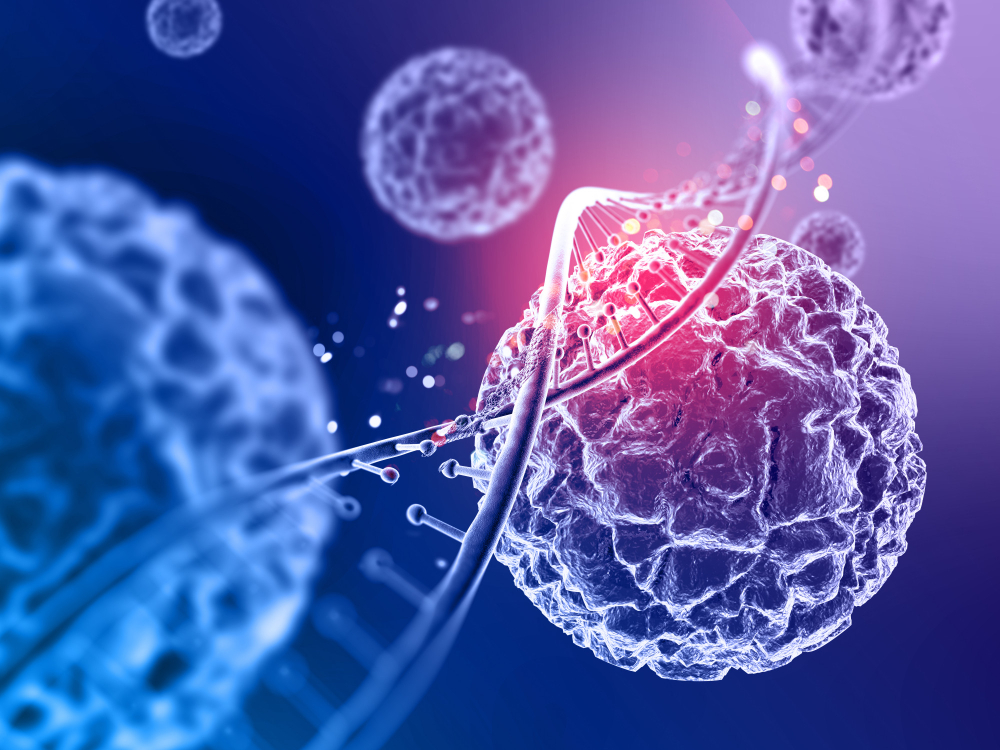



Our bodies consist of trillions of cells, and every day, about 5,000 of them take a step towards becoming cancerous. However, the immune system of healthy individuals recognizes these cells undergoing changes and, like crushing a snake's head when it's still small, instantly destroys them. Our immune system not only detects external microbes but also identifies cell differentiations occurring within our bodies, playing a crucial role in protecting us from cancer.
Therefore, individuals with weakened or compromised immune systems not only become vulnerable to infections but are also more susceptible to developing cancer. Unfortunately, the side effects of cancer drugs exacerbate this vulnerability. The medications used to kill cancerous tissue, which also harm healthy cells—especially suppressing the immune system's main source, the bone marrow—can weaken the immune system, negatively affecting the body's natural battle against cancer.
These drugs, if administered in slightly higher doses, can even lead to our demise. Regrettably, not every cancer case benefits from chemotherapy, and in some instances, chemotherapy can worsen the situation. When diagnosed with cancer, we consult an oncologist (cancer specialist) and initiate the recommended treatment (chemotherapy or radiation therapy) because, at that point, there seems to be no other, less harmful treatment option. However, it is crucial to be aware that the benefits of ozone therapy, which can alleviate the side effects of cancer treatments and be successfully used as an additional treatment for cancer, should not be overlooked. Ozone therapy and cancer are compatible, like a hand fitting into a glove.
Ozone therapy not only has no side effects but also provides relief from the side effects of cancer drugs. It reduces complaints such as immune system collapse, fatigue, severe nausea, vomiting, loss of appetite, and weight loss by up to 80%, allowing patients to continue chemotherapy and radiation therapy more comfortably. It not only improves your well-being and facilitates treatment adherence but also disrupts the nourishment of tumor cells by floating tumor tissue in oxygen, causing the breakdown of cancerous tissue and, consequently, enhancing the success of cancer treatment. Unfortunately, this treatment method is not adequately examined or known by our oncologists, and people can be deprived of such a crucial complementary treatment.
People can experience oxygen deficiency for various reasons, such as prolonged exposure to air pollution, smoking, a sedentary lifestyle, stress, lung and cardiovascular diseases, inappropriate diets, inability to take deep breaths, and inadequate exercise. Dr. Otto Warburg, a Nobel laureate, points to oxygen-deficient living as the fundamental cause of cancer in his work that won him two Nobel Prizes. According to Dr. Warburg, alongside external factors like stress, pollution, and radiation, internal factors like oxygen deficiency can combine with oncogens to initiate cancer. In other words, oxygen deficiency in our cells is considered a significant factor leading to cancer. Dr. Warburg used the expression: the one and ultimate cause of cancer is "anaerobiosis" (oxygenless living). Normal cells require oxygen, but cancer cells can live without it. Dr. Warburg showed that when normal cells taken from any embryo are forced to live without oxygen in a laboratory tube, they start acquiring the characteristics of cancer cells.
When cells are deprived of oxygen, they can revert to their most primitive state and, when they start getting their energy from sugar instead of oxygen, their cellular structure begins to deteriorate, leading to a transformation towards cancer. The rapid reproduction of cancer cells requires a high consumption of glucose (sugar), converting glucose into lactic acid. As the body's acidity increases, it becomes more challenging for cells to use oxygen. According to the theory of oxygen deficiency, cancer cells cannot survive in an oxygen-rich environment, and providing sufficient oxygen disrupts the nourishment of tumor tissue, leading to the breakdown of tumor cells.
Oxygen deficiency also facilitates the spread of cancer. Swiss scientists have shown that cancer cells try to escape from the primary tumor due to oxygen deficiency and settle elsewhere, attempting to spread. A recent study at the University of Tübingen in Germany demonstrated rapid healing in cancerous tissue when cancer cells were bombarded with oxygen. After these scientific studies, the importance of oxygen in the treatment and prevention of cancer was recognized, and ozone (super oxygen) therapy gained significance.
